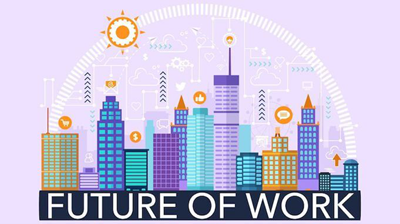In today’s rapidly changing job market, it is crucial for both individuals and organizations to foster a culture of continuous learning and growth. The digital age has brought unprecedented change to the way we live, work, and interact with each other, and the rise of automation and artificial intelligence (AI) has the potential to displace workers and reduce the need for human labor in certain areas.

The Importance of Continuous Learning and Growth
Continuous learning enables employees to adapt quickly to changing circumstances and ensures organizational agility and competitiveness. Investing in employee growth leads to increased job satisfaction, engagement, and retention. Empowering employees to learn and grow leads to reduced stress, greater job satisfaction, enhanced self-esteem, improved mental health, and expanded professional networks.

Strategies for Creating a Culture of Continuous Learning
Strategies for creating a culture of continuous learning and growth include developing clear learning objectives, providing learning opportunities, recognizing and rewarding progress, promoting collaboration, and supporting work-life balance. Incorporating feedback and continuous improvement is essential for effective continuous learning initiatives, including conducting regular surveys, implementing a feedback loop, monitoring relevant KPIs, and being open to change.

Adapting to the Future of Work
The article discusses the impact of automation and AI on the future of work, exploring the idea of humans and machines working together in the workplace. It emphasizes the need for humans to adapt and develop new skills to work effectively with robots and discusses the potential impacts of automation and AI on various industries, including manufacturing and healthcare. The article suggests that humans and machines will complement each other’s strengths and weaknesses in the future workplace.

Supporting Workers in the Digital Age
Workers will need to adapt to new technologies and develop new skills to thrive in this changing landscape. Lifelong learning and professional development are essential for workers to stay relevant in the job market. Employers and policymakers have a role to play in supporting workers and ensuring they can benefit from the advances of the digital age. The digital age presents both opportunities and challenges for workers, and embracing change is key to adapting and thriving in an evolving job market.
